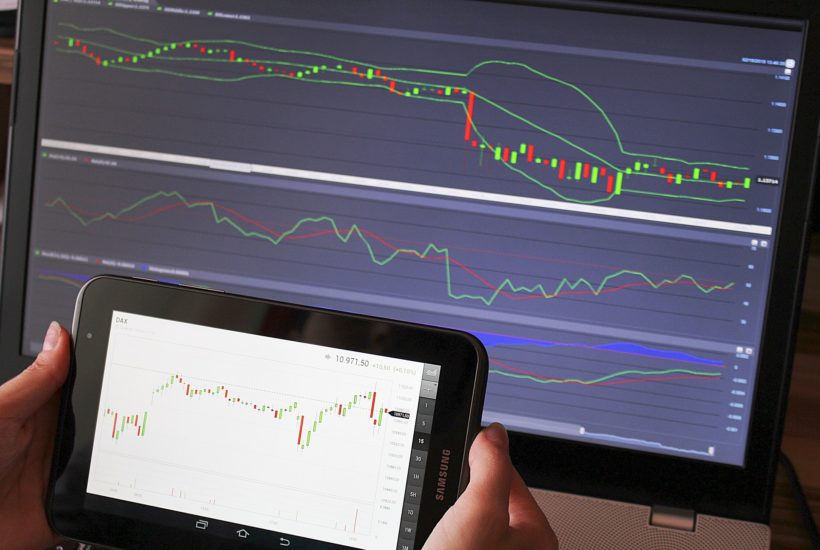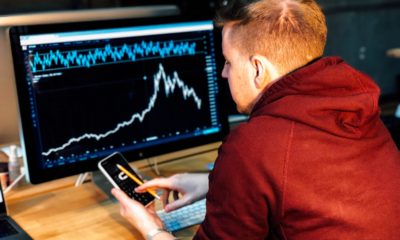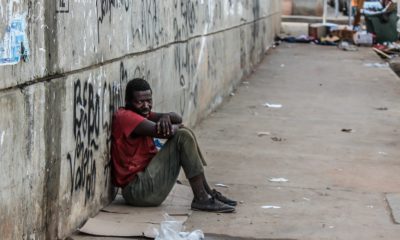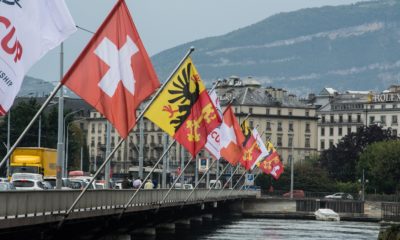Featured
Contrary to popular belief, ESG investment outperforms
In January 2019, S&P launched an ESG index based on the S&P 500. The index excludes companies with a low ESG rating in absolute terms or relative to their peers. Global market capitalization stood at nearly $90 trillion at the end of 2019, compared to the $14 trillion invested in ESG in Europe and $12 trillion in the US across all asset classes.

There is a common perception in the markets that investments with an ESG (environmental, social, governance) or sustainable focus, in a more general sense, underperform. This position proved to be wrong last March and April when the global stock market suffered one of the largest shocks of all time. This episode may have been the ultimate stress test, opening the door once and for all to investors who are in favor of these strategies.
Download for free our companion app Born2Invest and be the first to find out the latest finance news in the world.
The ESG version of the S&P 500 index has outperformed the main index
The S&P 500 is one of the flagship indices, tracking the market capitalization of 500 large US companies, representing about 80% of the available capitalization in the United States. In January 2019, S&P launched an ESG index based on the S&P 500. The index excludes companies with a low ESG rating in absolute terms or relative to their peers, or companies engaged in an activity that is contrary to the principles of sustainability, such as tobacco, for example. The index therefore includes 311 companies after the revision carried out at the end of April 2020.
Excluding 189 members, the ESG version of the S&P 500 Index has outperformed the main index by 2.7% since April 2019. The mission of the S&P 500 ESG (i.e., actually S&P 311) is not to beat the main index but to bring the ESG factor to it. The outperformance is a good exogenous surprise, so to speak. It also turns out that other index providers have also found that sustainable indices have fared better this year than the main indices. The Dow Jones Sustainability World Composite beat the Dow Jones by 3.8% year-to-date, and the MSCI World ESG Leaders outperformed the MSCI World Index by 1.3%.
Investments in ESG funds are increasing
Morningstar reported that $45.6 billion was invested in ESG investment funds in the first quarter of this year, compared to $384.7 billion in outflows from other types of funds. For ESG, this represents a 12% drop in the highest amount invested ($960 billion at the end of 2019) compared to an 18% drop for other funds in the first quarter. If this trend were to continue, the COVID-19 pandemic would potentially be the key event to anchor sustainable finance as a performance driver as well as downside protection for investment portfolios in general.
However, there is still a long way to go. Global market capitalization stood at nearly $90 trillion at the end of 2019, compared to the $14 trillion invested in ESG in Europe and $12 trillion in the US across all asset classes. However, the growth of sustainable finance is three times higher than other investments. Within a few years, the theme could represent 50% of investment in 2025 according to Deloitte. To achieve this, progress would have to be made in the area of standardization of ESG data and the regulations surrounding them.
Only 35% of the data currently used to assess ESG comes from a voluntary analysis of listed companies themselves. The future winners are likely to be those who communicate best on these factors for companies, and those who are best at collecting and using quality data on these issues on the investor side.
__
(Featured image by PIX1861 via Pixabay)
DISCLAIMER: This article was written by a third party contributor and does not reflect the opinion of Born2Invest, its management, staff or its associates. Please review our disclaimer for more information.
This article may include forward-looking statements. These forward-looking statements generally are identified by the words “believe,” “project,” “estimate,” “become,” “plan,” “will,” and similar expressions. These forward-looking statements involve known and unknown risks as well as uncertainties, including those discussed in the following cautionary statements and elsewhere in this article and on this site. Although the Company may believe that its expectations are based on reasonable assumptions, the actual results that the Company may achieve may differ materially from any forward-looking statements, which reflect the opinions of the management of the Company only as of the date hereof. Additionally, please make sure to read these important disclosures.
First published in AGEFI, a third-party contributor translated and adapted the article from the original. In case of discrepancy, the original will prevail.
Although we made reasonable efforts to provide accurate translations, some parts may be incorrect. Born2Invest assumes no responsibility for errors, omissions or ambiguities in the translations provided on this website. Any person or entity relying on translated content does so at their own risk. Born2Invest is not responsible for losses caused by such reliance on the accuracy or reliability of translated information. If you wish to report an error or inaccuracy in the translation, we encourage you to contact us.

-

 Fintech2 weeks ago
Fintech2 weeks agoBitget Secures Operational License in Georgia, Strengthening Its Eastern Expansion
-

 Biotech7 days ago
Biotech7 days agoPfizer Spain Highlights Innovation and Impact in 2024 Report Amid Key Anniversaries
-

 Cannabis2 weeks ago
Cannabis2 weeks agoGermany’s Cannabis Crossroads: Progress, Profits, and Public Concern
-

 Markets2 days ago
Markets2 days agoStock Markets Surge Amid Global Uncertainty, But Storm Clouds Loom

























